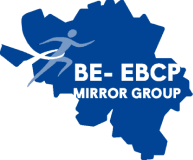Project
OVADEX
Defining the role of the tumor microenvironment in treatment resistance of OVArian cancer through patient-Derived EXplants
1 September 2022 - 31 August 2024
The project is developing a platform based on patient-derived explants (PDEs) that allows the study of TME interactions with cancer cells.
Project description
Treatment resistance in ovarian cancer (OC) is common. Recent efforts have identified new treatment approaches with potential to improve its management, but their therapeutic effects are limited due to treatment resistances. Tumor microenvironment (TME) is emerging as a key contributor to treatment resistance, being the metabolic cross-talk between TME and OC one of the recently proposed mechanisms. The hosting lab has evidence that platinum-resistant OC cells have defects in serine biosynthesis which leads to an enhance uptake of serine. Importantly, exogenous serine is also required for some TME components, suggesting a possible competition for it and affecting their anti-cancer function. Thus, my working hypothesis is that metabolic cross-talk between TME and OC could involve serine metabolism, which could mediate treatment resistance.
Unfortunately, there is a lack of preclinical models of OC that recapitulate TME to study its role. In this regard, the secondment lab developed a new ex vivo platform based on patient-derived explants (PDEs) that allows the study of TME interactions with cancer cells. In OVADEX, we will use PDEs to dissect the role of TME components in treatment response in OC, and particularly, in the metabolic reprogramming of cancer cells.
The project’s objectives are to generate OC PDEs and expose them to standard and emerging therapies, to define metabolic changes in OC cells and cellular and phenotypic changes in TME before and after treatment and to associate changes in TME and OC cells to serine metabolism and treatment resistance. To this end, we will integrate innovative techniques and the access of the hosting team to a unique registry of OC patients.
Funding programme & Type of funding
Funding programme : Horizon Europe
Type of funding :
Grant agreement number :
Duration
2 years
